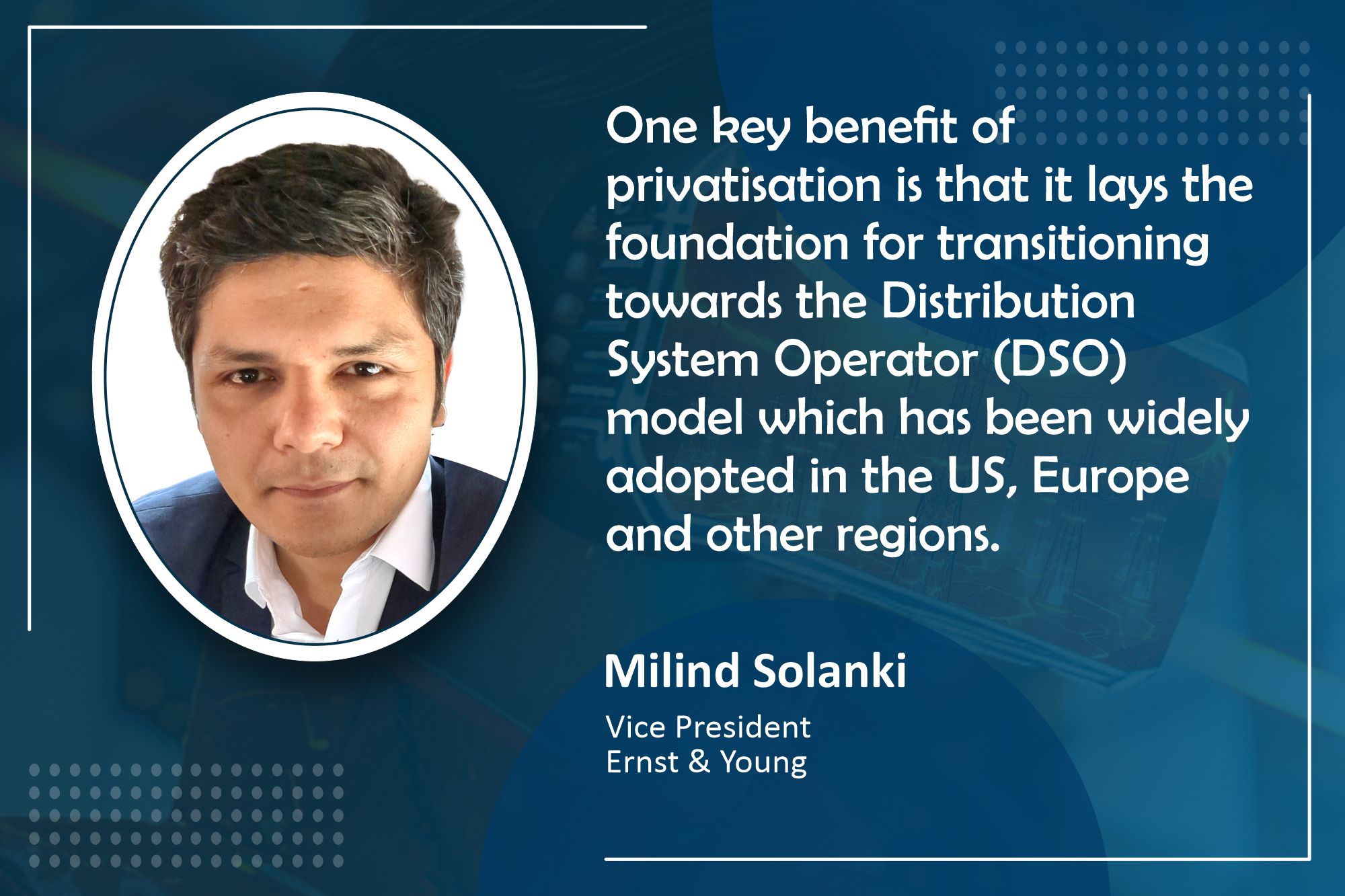Privatisation is the path to sustainable and efficient power distribution in India
By EPR Magazine Editorial March 4, 2025 11:29 am IST
By EPR Magazine Editorial March 4, 2025 11:29 am IST

Privatisation has emerged as a viable solution to address financial stability, grid modernisation and improved consumer experience.
Financial distress, inefficiencies, and operational challenges have long plagued the power distribution sector in India. With over $120 billion in cumulative losses over the past 15 years, the traditional model of government-backed bailouts through schemes like the Revamped Distribution Sector Scheme (RDSS) has proven unsustainable. Privatisation has emerged as a viable solution to address these deep-rooted challenges and ensure financial stability, grid modernisation, and improved consumer experience.
Struggles of Power Distribution Companies
Discoms in India face many issues, including high transmission and distribution (T&D) losses, political inefficiencies, cross-subsidisation and non-payment of electricity dues. A significant burden is placed on commercial and industrial (C&I) consumers, who pay significantly higher tariffs compared to global standards. This model discourages industrial growth and creates an unsustainable financial structure for Discoms.
Privatisation has been a topic of discussion for years, and real-world case studies showcase its benefits. The success of Tata Power in Delhi, where losses were reduced from 48 per cent to 6 per cent, and BSES, where billing efficiency improved significantly, demonstrate that private utilities invest in technology, automation, and smart metering to enhance billing and collection efficiency while reducing theft and improving revenue assurance.
Privatisation and the Distribution System Operator (DSO) Model
One key benefit of privatisation is that it lays the foundation for transitioning towards the Distribution System Operator (DSO) model, which has been widely adopted in the US, Europe, and other regions. Unlike traditional Discoms, DSOs act as neutral entities that not only distribute power but also optimise the grid by balancing supply, integrating renewables, and enabling smarter energy management.
A critical feature of the DSO model is “Open Access,” which allows multiple power suppliers to use the same distribution network, giving consumers the freedom to choose their electricity provider. The separation of carriage and content concept is similar to the telecom sector, where consumers can switch between service providers like Airtel, Jio and Vodafone Idea to access better services at competitive prices. Mumbai already follows this model where consumers can switch between Tata, Adani and Reliance power providers based on service quality and pricing.
Key BenefitsFinancial Stability: Private sector participation brings much-needed capital investment, which can be used to modernise infrastructure, adopt advanced technologies, and improve operational efficiency. Unlike state-owned utilities that struggle with financial inefficiencies, private utilities have the ability to make long-term, strategic investments in smart grids, AI-driven demand response programs, and automation.
Grid Modernisation: Private utilities globally have demonstrated a strong commitment to upgrading infrastructure by implementing smart meters, real-time monitoring systems and digital energy management solutions. These initiatives enhance grid efficiency, reduce losses and ensure a more reliable power supply.
Market Competition and Consumer Benefits: Privatisation promotes market-driven competition, preventing monopolistic control over power distribution. With multiple players competing, consumers benefit from better service quality, transparent pricing and fewer outages. Similar to how telecom competition led to better services and lower tariffs, privatisation in power distribution can improve the overall consumer experience.
Addressing Concerns
While privatisation presents a strong case for improved efficiency and financial stability, concerns about political risks, job losses, and tariff hikes must be addressed.
Privatisation, if executed strategically, can drive financial stability, operational efficiency and technological advancements in power distribution. Transitioning towards the DSO model can enhance grid resilience, promote competition and empower consumers with choices. With the right policies and governance, private sector involvement can ensure a reliable, cost-effective and sustainable power distribution system, aligning with the long-term energy goals of India.
We use cookies to personalize your experience. By continuing to visit this website you agree to our Terms & Conditions, Privacy Policy and Cookie Policy.